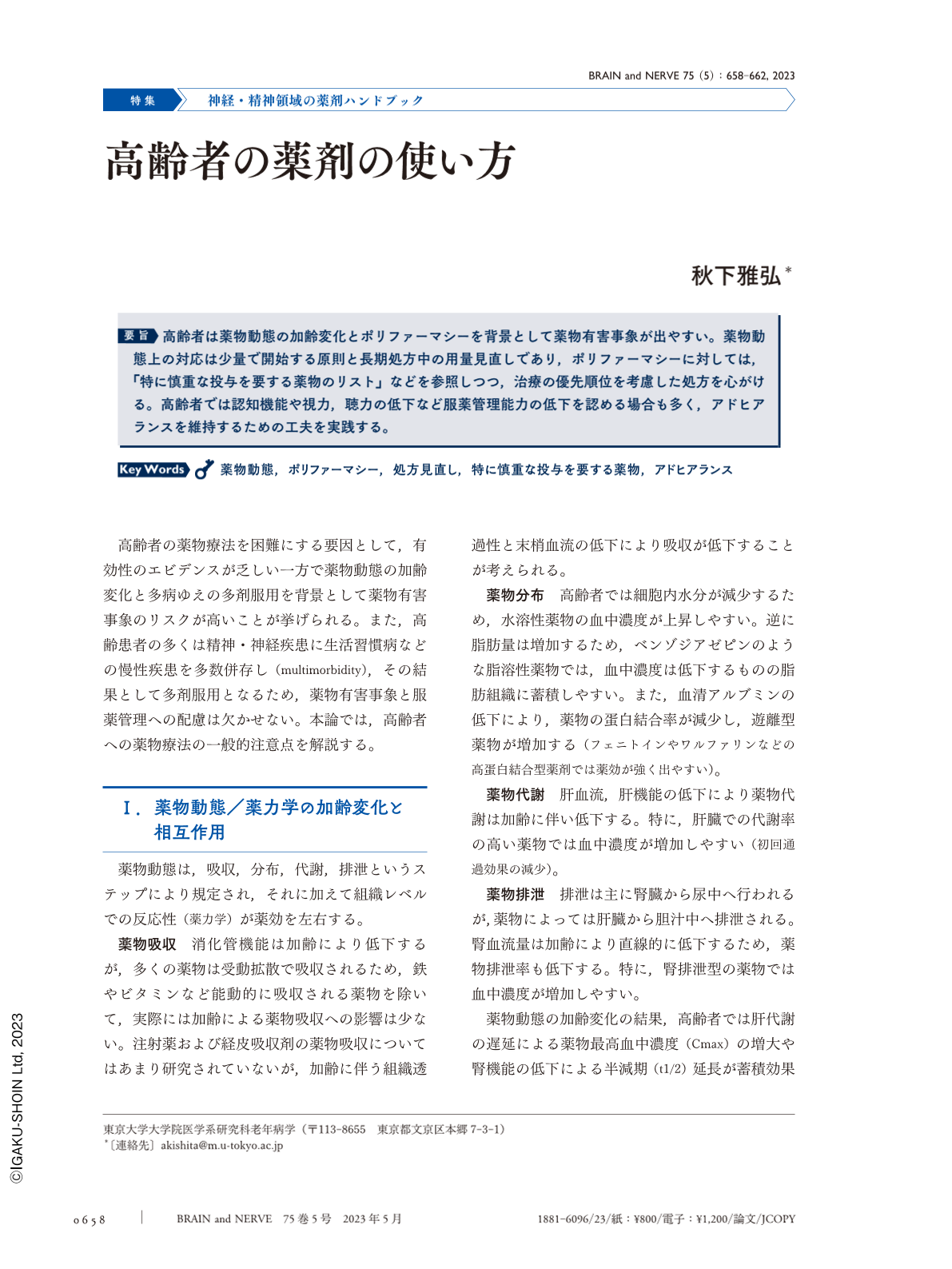Japanese
English
- 有料閲覧
- Abstract 文献概要
- 1ページ目 Look Inside
- 参考文献 Reference
高齢者は薬物動態の加齢変化とポリファーマシーを背景として薬物有害事象が出やすい。薬物動態上の対応は少量で開始する原則と長期処方中の用量見直しであり,ポリファーマシーに対しては,「特に慎重な投与を要する薬物のリスト」などを参照しつつ,治療の優先順位を考慮した処方を心がける。高齢者では認知機能や視力,聴力の低下など服薬管理能力の低下を認める場合も多く,アドヒアランスを維持するための工夫を実践する。
Abstract
Older adults are likely to develop adverse drug events owing to age-related changes in pharmacokinetics and polypharmacy. In terms of pharmacokinetics, the drug should be prescribed at a reduced dose, which should be reconsidered and reduced during long-term use. For polypharmacy, “List of drugs to be prescribed with special caution” should be referred and deprescription should be practiced in consideration of the priority of treatment. Because older adults often show reduced ability to manage their medication due to cognitive dysfunction, low visual acuity, and hearing loss, measures should be taken to maintain their adherence.

Copyright © 2023, Igaku-Shoin Ltd. All rights reserved.


